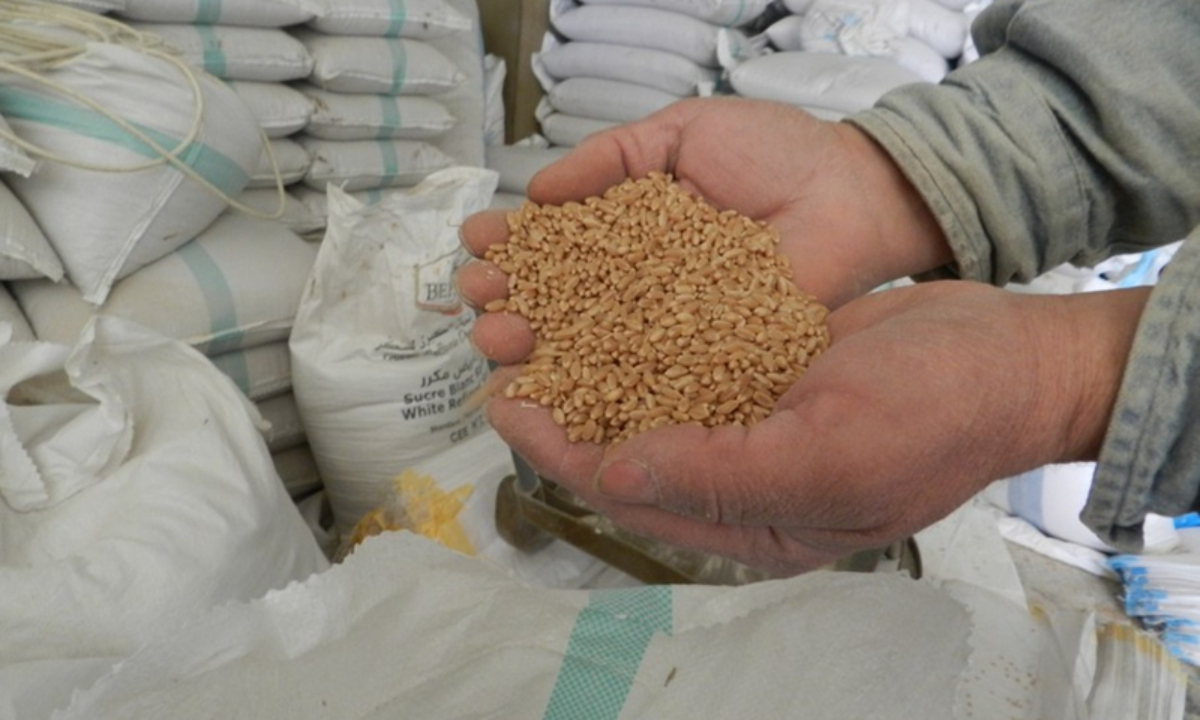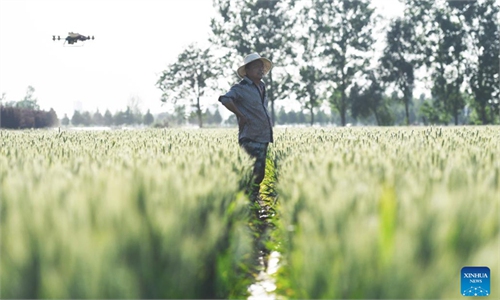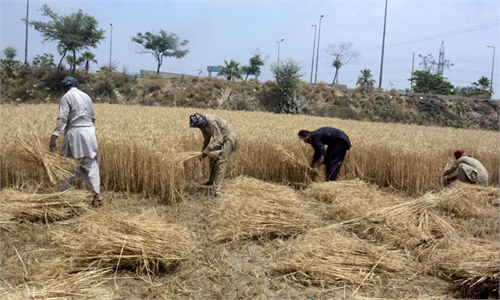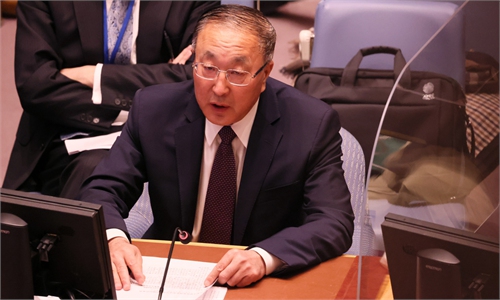
Photo: Xinhua
A global food crisis seems to be approaching amid the COVID-19 pandemic, the Russia-Ukraine conflict, extreme weather and skyrocketing prices. Ukrainian President Volodymyr Zelensky warned of a global food crisis if the country cannot export its agricultural goods, while Sara Menker, a food supply expert, said at a recent UN Security Council meeting that there was only 10 weeks of wheat supply left in the world.
A lot of food supply analysis these days have been telling the public that the military conflict between Russia and Ukraine, which together account for about 30 percent of global wheat exports, has exacerbated the global food insecurity, sending shockwaves across developing countries that rely heavily on imported grain. When it comes to wheat supply, the global market is indeed facing disruptions. Countries like Egypt, Lebanon and Pakistan, which are traditionally top importers of Ukrainian wheat, are likely to be affected.
However, it is also worth noting that in the context of the deepening conflict between Russia and Ukraine, Western sanctions against Russia as well as an attempt by the US and its allies to get hold of a substantial amount of Ukrainian wheat and corn have actually exacerbated the global anxiety about food security, pointing to rising food prices and increasing uncertainties regarding global food supplies. To a certain extent, reduced supplies, supply chain obstacles, and rocketing prices have jointly contributed to the looming food crisis.
According to the 2022 Global Report on Food Crises released on May 4, nearly 193 million people experienced crisis level or worse food insecurity in 2021, an increase of almost 40 million compared with the previous record in 2020. And the food security situation is expected to get even worse this year.
Faced with the emerging food crisis, should countries around the world pin their hopes on a quick solution for Russia-Ukraine conflict in the short term? That's unlikely given the current development. However, the conflict itself is not the only factor behind the problem. In fact, there are still some other countries, including the US and Canada, that account for a large share of global grain production and exports. Compared with Russia or Ukraine, developed economies seem to have more potential to stabilize global food supply by hiking their exports.
The US is already the world's largest grain exporter, accounting for around 10 percent of the global food exports in 2021, but some of its recent moves may suggest that the Biden administration may care more about using the crisis to bolster its own food hegemony instead of helping avert a global food crisis.
The US and its allies are currently trying to get about 20 million tons of Ukrainian wheat and corn in storage out of the country, according to media reports. If such efforts are really aimed at addressing the food supply issues for the developing world, the move is certainly laudable. But given the fact that the US always benefited enormously from every past food crisis, it is doubtful that the US' holding of Ukrainian grain reserves is for the sake of the world.
Moreover, the US and its allies imposed many economic sanctions on Russia to block its exports, presenting the best opportunity for the US to take Russia's share in terms of the global food supply.
If the West's sanctions and other moves eventually lead to mass hunger, the West will become the biggest violator of human rights and history will hold them accountable. With developing countries rejecting to be tied to the Western chariot, a new wave of anti-Western sentiment could be expected around the world.
Under such circumstances, the international community should pay close attention to the developed countries, especially the US, when it comes to their moves in the global grain market. The Russia-Ukraine situation should not become an excuse for them to profit from a potential devastating food crisis. Instead, they need to shoulder their responsibilities and actively coordinate with the developing world to address the food shortage issue.



